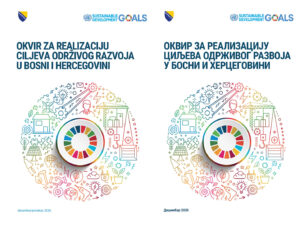
At its 32nd session, the Council of Ministers of Bosnia and Herzegovina (BiH) adopted the document “Sustainable Development Goals (SDGs) Framework in BiH”.
This document was adopted earlier by the governments of the Federation of BiH, the Republika Srpska and the Brčko District of BiH.
In September 2015 Bosnia and Herzegovina, together with 192 United Nations Member States, committed to implement Agenda 2030 for Sustainable Development (Agenda 2030), which consists of 17 Sustainable Development Goals and 169 targets.
The sustainable development goals address global challenges including poverty, inequality, climate change, environmental degradation, prosperity, peace, and justice and are the blueprint to achieve a better and more sustainable future for the whole world. They
„The Embassy of Sweden welcomes yesterday´s adoption of the Sustainable Development Goals Framework by the Council of Ministers of Bosnia and Herzegovina. I am pleased that Sweden has financed the project providing support to relevant stakeholders developing this document. It is key for proper implementation of the Sustainable Development Goals in this country. It defines the 2030 vision, key development direction and drivers adjusted to the local context allowing for a holistic approach to long-term development by defining priorities for inclusive and sustainable growth as it serves as a platform for cooperation and partnership“, said H.E. Johanna Strömquist, Swedish Ambassador to Bosnia and Herzegovina.
“On behalf of the United Nations in in Bosnia and Herzegovina, I welcome yesterday’s adoption of the SDGs Framework by the Council of Ministers of BiH. This adoption is a recognition of the commitment to sustainable development, across sectors and different levels of government, and is the outcome of years of investment in building a truly country owned Framework for Agenda 2030. This framework is the first, joint vision for sustainable development in Bosnia and Herzegovina for more than a decade, and, alongside the Nationally Determined Contributions approved in March under the Paris Agreement, provides the foundation for a fair, green, and inclusive recovery from COVID-19. The UN will continue to work with the authorities and communities in the implementation of this framework and to support the country in all dimensions of sustainable development”, said Dr. Ingrid Macdonald, United Nations Resident Coordinator in Bosnia and Herzegovina.
Agenda 2030 and the Sustainable Development Goals are based on three principles, the first of which is universality. Agenda 2030 is a commitment by all countries to sustainable development in all contexts.
Second is integration. Agenda 2030 recognizes the interlinkages between all aspects of sustainable development, meaning more equal economic growth by protecting the environment and natural resources, as a pathway for creating more equitable society.
Agenda 2030 recognizes that we must “Leave no one behind”. Development can only be sustainable if it targets multidimensional causes of poverty and inequality as well as discrimination in all forms.
Bosnia and Herzegovina has recognized the importance of the Sustainable Development Goals and Agenda 2030 as an opportunity to significantly improve social, economic and environmental aspects of life within the country and to enhance the regional cooperation.
The SDGs Framework in Bosnia and Herzegovina is based on an assessment of key development trends, opportunities, and obstacles, in the context of Bosnia and Herzegovina’s accession to the European Union and in extensive consultation with stakeholders conducted between 2018-2019. The Framework recognizes three pathways of sustainable development in Bosnia and Herzegovina: 1) Good Governance and Public Sector Management; 2) Smart Growth; 3) Society of Equal Opportunities, and two horizontal themes 1) Human Capital for the Future and 2) the “Leave no one behind” Principle.
In compliance with Agenda 2030 and commitments taken by Bosnia and Herzegovina, the SDG Framework in Bosnia and Herzegovina also determines the concrete targets and indicators to measure the progress.
This framework will steer the current and upcoming development planning in Bosnia and Herzegovina, including the Republika Srpska, the Federation of Bosnia and Herzegovina and the Brčko District of Bosnia and Herzegovina. The development of the document “SDGs Framework in BiH” was supported within the “SDGs Roll-out Support and Private Sector Engagement” project, which is financed by Sweden and implemented by the United Nations Development Programme (UNDP) in Bosnia and Herzegovina.




